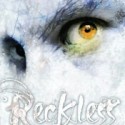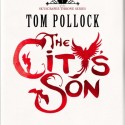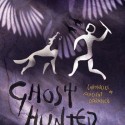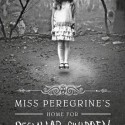Fearless (Reckless #2)
Since the publication and subsequent translation of Inkheart into countless different languages, Cornelia Funke has been one of the few non-English children’s authors whose novels are almost universally familiar amongst English-speaking bookworms. My first Funke novel was Dragon Rider, an endearing fantasy novel that was possibly Funke’s first bestselling novel outside her native Germany, and one that every 8-12 year old should read. I remember being ensnared in the narrative in a way that few books had done before, and later when I read the Inkworld Trilogy, I was similarly bewitched. It was in this context that I adored Funke’s latest efforts in 2010 with the release of Reckless and similarly now, having just finished the sequel to that novel.
Fearless follows, thematically at least, relatively close to where Reckless finished off, with Jacob trying to find a cure for the curse the Dark Fairy put on him in return for his brother’s life. The search is fruitless: nothing seems to be able to remove the Fairy’s moth, the sign of possession that adorns his breast and reminds him of his impending death. But legends speak of a crossbow made of the long-extinct Alderelves, bequeathed to the long dead Witch-Slayer, who massacred whole nations with its power. Curiously, the third arrow that was shot healed his dying son. Finding the crossbow is Jacob’s only chance of survival, and even for the best treasure hunter this side of the mirror it is no easy task; particularly when you’ve got a goyl hot on your tails, intent on finding the weapon before you.
Excellent, you might think – the plot of Fearless is as grandiose as that of Reckless. And certainly, on the surface, it would seem so: nothing beats a good old treasure hunt in a world where all the fairytales told to you as a child are real. Yet, when it came to plotting, Funke let herself down. Instead of an epic journey across a fairy-infested alternate Europe, Jacob and Fox spend mere paragraphs jumping from country to country – leaving each one hopelessly underdeveloped. Plot twists that should have been climaxes of the narrative were dealt with cackhandedly, mere afterthoughts that had no emotional impact whatsoever. Rather than being invested in the journey, I felt like a burden to the characters, an intruder rather than a guest in their quests.
The characters, too, were a disappointment. Jacob evolves imperceptibly from his appearance in Reckless. His only thoughts are for his new-found admittance for his feelings for Foxself and his selfish self-preservation, which would make him something of an antihero if only Funke had harnessed that side of his character. Instead, he is as dull and uninspiring as he was intriguing and curious in Reckless. Nerron, the goyl treasure hunter is a new addition to the story, and though his half of the split narrative is ineffective (largely due to the tiny amount of page-time he gets), he is an interesting character, particularly when Funke brings out the more admirable qualities in him and plays with notions of hero and villain. Again, however, it feels like a trick has been missed, and Funke never quite explores a character trait to its fullest extent.
Fox’s character sees the most development in Fearless, making her the most interesting of the lot as she confronts her painful upbringing as well as her love for Jacob. However, even she suffers from some disappointing dialogue; much of the fiery exchanges between Jacob and her that made Reckless so enticing have been lost. In fact, dialogue took such a large step back that it was almost impossible to get to know the characters: everything was told through Funke’s narration rather than being explored through speech.
Part of the problem is that Funke has tried to outdo herself. Reckless was based on Grimm’s fairytales: stories she knew very well and was extremely capable of manipulating. Fearless, on the other hand, moves away from Germanic folklore and into other European fables, which were less-well harnessed and felt like more of an add-on than an integral part of the narrative. It also meant that Fearless lost a lot of its appeal and atmosphere, which came from the use of Grimm’s tales. This, coupled with the awful translation meant that Fearless was a lot less powerful than it should have and could have been.
It’s clear that Funke hasn’t lost any of her imagination; the ideas are still ever-present. What has taken a blow, for whatever reason, is the execution of the novel: the plotting, character building and dialogue, all of which made Reckless such an exciting novel. The bad translation didn’t help either, and there are glimpses in which Funke is back on form. Fearless underperforms and is a disappointing sequel to what was a very promising series starter.





